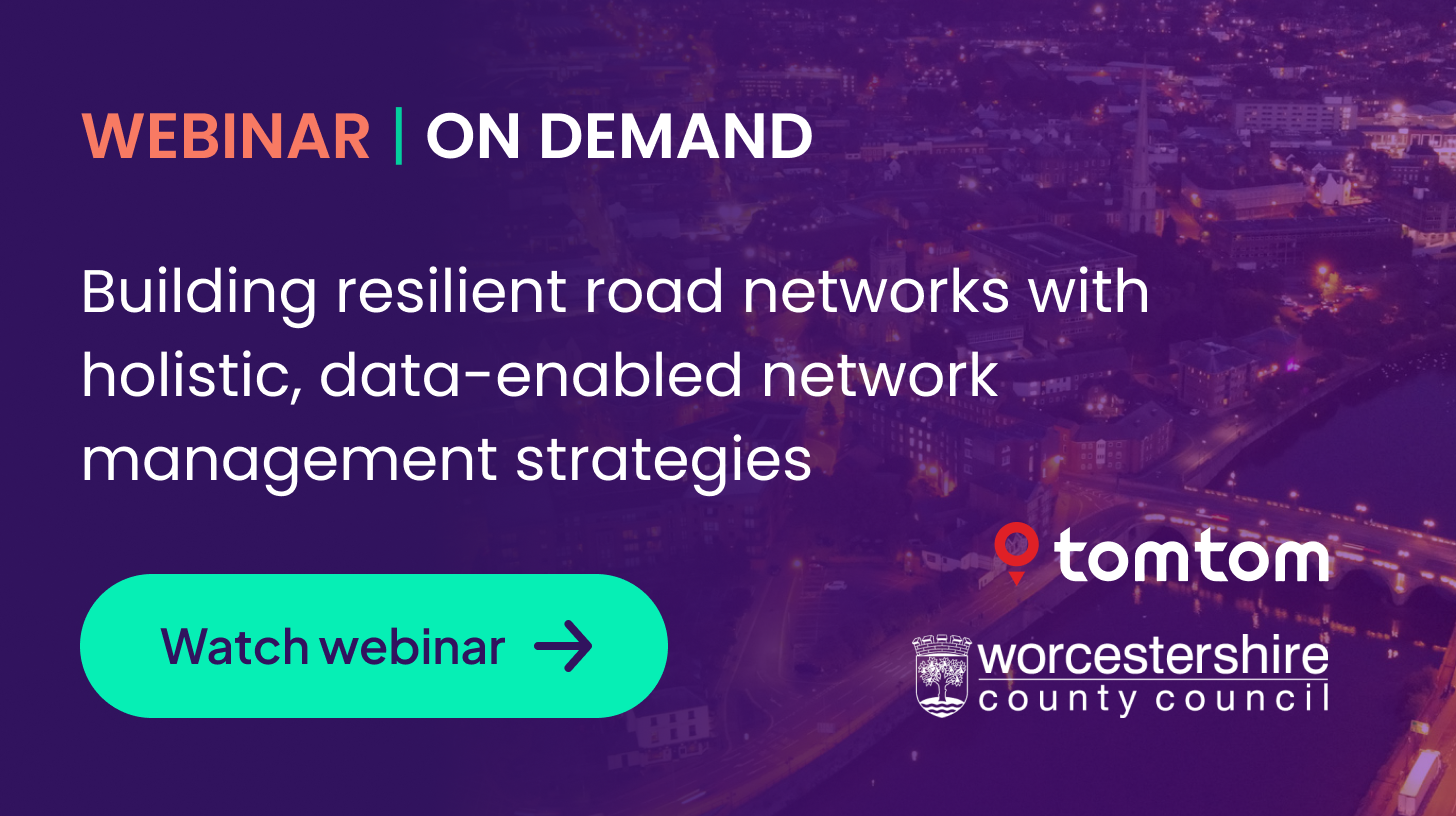23 May 2024
WEBINAR RECAP: Building resilient road networks with holistic, data-enabled network management strategies

In our recent webinar, "Building resilient road networks with holistic, data-enabled strategies," we delved into how real-time and historical data can help us create robust and resilient road systems.
Charlotte Redfern, Customer Success Manager at Causeway, spearheaded the session and was joined by industry experts, including Doug Gilmour of TomTom, Ed Dursley, and Michael Hastings from Worcestershire County Council. Collectively, they delivered invaluable perspectives on proactive network management and the advantages of leveraging traffic data.
You can watch the recording here.
Insights from Doug Gilmour, TomTom
Doug Gilmour from TomTom kicked off the session with a look at how TomTom collects and utilises GPS data from diverse sources to deliver detailed insights into traffic congestion. He spotlighted the power of this data to track traffic movement, pinpoint congestion hotspots and guide swift decision-making. Doug stressed the significance of incorporating this data into daily operations to enhance the resilience and efficiency of our road networks, amidst extensive infrastructure deployments and rising vehicle numbers.
Insights from Worcestershire County Council
Ed Dursley, Events and Open Highways Network Manager, shared Worcestershire County Council's successful implementation of Causeway one.network for network management and traffic data analysis. He explained how the council uses our Network Monitor, Route Monitor and Traffic Replay solutions to investigate congestion issues and make informed decisions.
Michael Hastings, Highways & Transport Customer Service Manager, discussed the practical applications of traffic data in public communications. He showcased how Worcestershire County Council uses both live and historical traffic data to resolve public queries quickly and accurately. He also shared how the platform helps the council manage traffic efficiently but also provides the public with easy access to roadworks information, significantly reducing the volume of queries received. This transparent approach promotes self-service and empowers citizens with up-to-date information on roadworks and potential disruptions.
Ed and Michael also highlighted several initiatives where traffic data was pivotal, such as planning diversion routes during major schemes and assessing road safety. By proactively using traffic data, the council can plan maintenance and improvement programs more effectively, ultimately enhancing road network resilience and reducing carbon emissions.
Key Takeaways
- Proactive Network Management: Leveraging real-time traffic data allows for immediate responses to congestion and other traffic issues.
- Historical Data Utilisation: Using past traffic data helps in planning and decision-making for future road maintenance and improvements.
- Public Empowerment: Providing transparent access to traffic and roadworks information reduces public queries and promotes self-service.
- Environmental Benefits: Efficient traffic management contributes to reduced carbon emissions.
- Collaborative Approach: Having a single platform for all road and traffic data allows for a more holistic, collaborative network management approach with a shared view across all internal teams.
For those who missed the live session, you can watch the recording here.
If you have any questions or wish to learn more about any of our Traffic Insights solutions, please get in touch. We are here to help you build a more resilient and efficient road network.